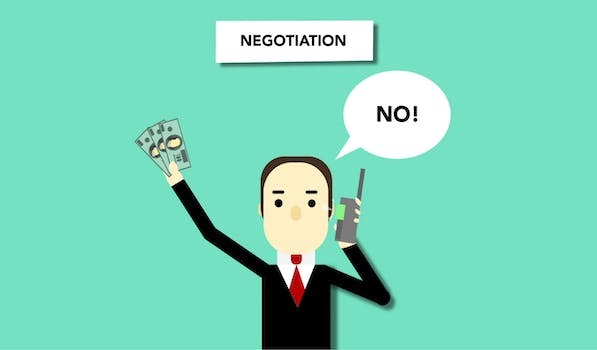How To Save On A New Car
“Smart tips for smarter savings on your new car purchase.”
Introduction
Introduction: Buying a new car can be an exciting experience, but it can also be expensive. Fortunately, there are several ways to save money when purchasing a new car. In this article, we will discuss some tips on how to save on a new car.
Negotiating Tips for Buying a New Car
Buying a new car can be an exciting experience, but it can also be a daunting one. With so many options available, it can be difficult to know where to start. One of the most important things to consider when buying a new car is how to negotiate the best deal possible. Here are some tips to help you save money on your next new car purchase.
1. Do Your Research
Before you even step foot in a dealership, it’s important to do your research. This means researching the make and model of the car you’re interested in, as well as the average price for that car in your area. You can use websites like Kelley Blue Book and Edmunds to get an idea of what you should be paying for the car you want.
2. Know Your Budget
It’s important to know your budget before you start negotiating. This means figuring out how much you can afford to spend on a car, including the down payment, monthly payments, and any other expenses like insurance and maintenance. Once you know your budget, you can use this information to negotiate a better deal.
3. Be Prepared to Walk Away
One of the most important things to remember when negotiating for a new car is to be prepared to walk away. If the dealership isn’t willing to meet your price, don’t be afraid to walk away. There are plenty of other dealerships out there, and you may be able to find a better deal elsewhere.
4. Negotiate the Price, Not the Monthly Payment
When negotiating for a new car, it’s important to focus on the price of the car, not the monthly payment. Dealerships may try to lure you in with a low monthly payment, but this can often result in a longer loan term and higher overall cost. Instead, negotiate the price of the car first, and then work on getting a monthly payment that fits within your budget.
5. Don’t Be Afraid to Ask for Extras
When negotiating for a new car, don’t be afraid to ask for extras like free oil changes or a warranty extension. Dealerships may be willing to throw in these extras to sweeten the deal and make the sale.
6. Consider Financing Options
Before you start negotiating for a new car, it’s important to consider your financing options. This means researching different lenders and finding the best interest rate for your budget. You can also consider getting pre-approved for a loan before you start negotiating, which can give you more bargaining power.
7. Be Polite and Respectful
Finally, it’s important to be polite and respectful when negotiating for a new car. Remember that the salesperson is just doing their job, and they may be more willing to work with you if you’re friendly and respectful. Avoid being confrontational or aggressive, as this can often backfire and result in a higher price.
In conclusion, negotiating for a new car can be a daunting task, but it’s an important one if you want to save money. By doing your research, knowing your budget, and being prepared to walk away, you can negotiate a better deal and get the car you want at a price you can afford. Remember to focus on the price of the car, not the monthly payment, and don’t be afraid to ask for extras. With these tips in mind, you’ll be well on your way to saving money on your next new car purchase.
Researching the Best Deals on New Cars

Buying a new car can be an exciting experience, but it can also be a daunting one. With so many options available, it can be difficult to know where to start. One of the most important things to consider when buying a new car is how to save money. In this article, we will explore some tips on how to research the best deals on new cars.
The first step in researching the best deals on new cars is to do your homework. This means researching the make and model of the car you are interested in, as well as the features and options that are available. You can do this by reading reviews online, talking to friends and family who own the same car, and visiting dealerships to test drive the car.
Once you have a good understanding of the car you want, it’s time to start looking for deals. One of the best ways to save money on a new car is to negotiate the price with the dealership. This can be done by researching the average price of the car in your area and using that information to negotiate a lower price.
Another way to save money on a new car is to take advantage of manufacturer incentives and rebates. Many car manufacturers offer cash back or low-interest financing on new cars, which can save you thousands of dollars over the life of the loan. You can find out about these incentives by visiting the manufacturer’s website or by asking the dealership.
It’s also important to consider the timing of your purchase. Car dealerships often offer better deals at the end of the month or the end of the year, as they are trying to meet sales quotas. Additionally, buying a car during a holiday sale can also result in significant savings.
When researching the best deals on new cars, it’s important to consider all of your options. This includes looking at both new and used cars, as well as considering different financing options. For example, leasing a car can often result in lower monthly payments than buying a car outright.
Finally, it’s important to be prepared when negotiating with a dealership. This means having a clear understanding of your budget and what you can afford, as well as being willing to walk away if the dealership is not willing to negotiate a fair price.
In conclusion, researching the best deals on new cars can be a time-consuming process, but it’s well worth the effort. By doing your homework, negotiating with the dealership, and taking advantage of manufacturer incentives and rebates, you can save thousands of dollars on your new car purchase. Remember to consider all of your options and be prepared when negotiating, and you’ll be well on your way to driving off the lot in your new car.
Timing Your Purchase for Maximum Savings
Are you in the market for a new car but worried about the cost? Fear not, there are ways to save money on your purchase. One of the most effective ways to save on a new car is by timing your purchase for maximum savings.
Firstly, consider the time of year. Dealerships often offer discounts and promotions at the end of the year to clear out inventory and make room for new models. This means that purchasing a car in December could save you thousands of dollars. Additionally, the end of the month is also a good time to buy as salespeople are often trying to meet their monthly quotas and may be more willing to negotiate on price.
Another factor to consider is the release of new models. When a new model is released, dealerships may offer discounts on the previous year’s model to make room for the new one. This means that purchasing a car just before a new model is released could save you money. However, be aware that the previous year’s model may not have all the latest features and technology.
If you’re not in a rush to purchase a car, consider waiting for a holiday weekend. Dealerships often offer special promotions and discounts during holiday weekends such as Memorial Day, Labor Day, and Fourth of July. This could save you a significant amount of money on your purchase.
Another way to save money on a new car is by being flexible with the make and model you want. If you’re set on a specific make and model, you may not have as much negotiating power. However, if you’re open to different options, you may be able to find a better deal. Research different makes and models and compare prices to find the best deal.
It’s also important to do your research before making a purchase. Look up the invoice price of the car you’re interested in and use that as a starting point for negotiations. Additionally, research the dealership you plan on purchasing from. Look up reviews and ratings to ensure that you’re working with a reputable dealership.
When negotiating with a salesperson, be firm but polite. Don’t be afraid to walk away if you’re not getting the deal you want. Remember, there are plenty of other dealerships and salespeople out there.
Finally, consider financing options. If you have good credit, you may be able to qualify for a low-interest rate loan. Additionally, consider leasing instead of purchasing. Leasing can often be a more affordable option and allows you to drive a new car every few years.
In conclusion, timing your purchase for maximum savings is a great way to save money on a new car. Consider the time of year, the release of new models, holiday weekends, and being flexible with your options. Do your research, negotiate with salespeople, and consider financing options. With these tips, you’ll be able to save money on your new car purchase.
Considering Used Cars as an Alternative
When it comes to buying a new car, many people assume that they have to buy a brand new vehicle straight off the lot. However, this is not always the case. In fact, considering used cars as an alternative can be a great way to save money on your next vehicle purchase.
First and foremost, used cars are typically much cheaper than new cars. This is because new cars depreciate in value very quickly, often losing thousands of dollars in value as soon as they are driven off the lot. By purchasing a used car, you can avoid this initial depreciation and get a great deal on a vehicle that is still in good condition.
Of course, there are some risks associated with buying a used car. For example, you may not know the full history of the vehicle, and there may be hidden issues that you are not aware of. However, there are steps you can take to mitigate these risks and ensure that you are getting a good deal.
One of the most important things to do when considering a used car is to have it inspected by a mechanic. This will give you a better idea of the condition of the vehicle and any potential issues that may need to be addressed. Additionally, you should always ask for a vehicle history report, which will give you information about the car’s previous owners, accidents, and maintenance history.
Another benefit of buying a used car is that you may be able to get a higher-end vehicle for the same price as a new, lower-end vehicle. For example, if you are in the market for a mid-size sedan, you may be able to find a used luxury sedan for the same price as a new mid-size sedan. This can be a great way to get more bang for your buck and enjoy a higher-end vehicle without breaking the bank.
When shopping for a used car, it is important to do your research and shop around. Look for vehicles that are in good condition and have a good reputation for reliability. Additionally, be sure to negotiate the price with the seller to ensure that you are getting a fair deal.
Overall, considering used cars as an alternative to new cars can be a great way to save money on your next vehicle purchase. While there are some risks involved, taking the time to do your research and have the vehicle inspected can help you avoid any potential issues and get a great deal on a reliable car. So if you are in the market for a new vehicle, be sure to consider the benefits of buying used and see if it is the right choice for you.
Financing Options for New Car Buyers
Buying a new car can be an exciting experience, but it can also be a costly one. Fortunately, there are several financing options available to help you save money on your new car purchase. In this article, we will explore some of the most popular financing options for new car buyers.
Firstly, it is important to understand that the price of a new car is not the only cost associated with purchasing a vehicle. There are also additional expenses such as taxes, registration fees, and insurance premiums. Therefore, it is essential to consider all of these costs when budgeting for your new car purchase.
One financing option that can help you save money on your new car purchase is a car loan. A car loan is a type of financing that allows you to borrow money to purchase a vehicle. The loan is typically repaid over a set period of time, with interest added to the amount borrowed.
When considering a car loan, it is important to shop around for the best interest rates and loan terms. Many banks and credit unions offer car loans, and it is worth comparing their rates and terms to find the best deal. Additionally, it is important to consider the length of the loan term, as a longer term may result in lower monthly payments but higher overall interest costs.
Another financing option for new car buyers is leasing. Leasing a car involves paying a monthly fee to use the vehicle for a set period of time, typically two to three years. At the end of the lease term, the car is returned to the dealership.
Leasing can be a good option for those who want to drive a new car every few years without the commitment of ownership. Additionally, lease payments are often lower than loan payments, as they only cover the cost of using the vehicle rather than the full purchase price.
However, it is important to note that leasing does come with some drawbacks. For example, there are often mileage restrictions and fees for excess wear and tear on the vehicle. Additionally, at the end of the lease term, there is no equity in the vehicle, meaning you will not have any ownership stake in the car.
A third financing option for new car buyers is to pay cash for the vehicle. While this may not be feasible for everyone, paying cash can help you save money in the long run by avoiding interest charges and loan fees.
If paying cash is not an option, it is still possible to save money on your new car purchase by negotiating the price with the dealership. Many dealerships are willing to negotiate on the price of a new car, especially if you are a knowledgeable and informed buyer.
Before heading to the dealership, it is important to do your research and know the fair market value of the vehicle you are interested in. This can be done by checking online pricing guides or speaking with other dealerships in the area. Armed with this information, you can negotiate a fair price for your new car.
In conclusion, there are several financing options available to help you save money on your new car purchase. Whether you choose a car loan, leasing, or paying cash, it is important to consider all of the costs associated with owning a vehicle and to shop around for the best deal. Additionally, negotiating the price with the dealership can help you save even more money on your new car purchase. With these tips in mind, you can make an informed decision and save money on your next new car.
Conclusion
Conclusion: Saving on a new car can be achieved by researching and comparing prices, negotiating with the dealer, considering financing options, and being open to alternative models or brands. It is important to set a budget and stick to it, as well as being aware of any additional fees or charges. With careful planning and preparation, it is possible to save money on a new car purchase.






